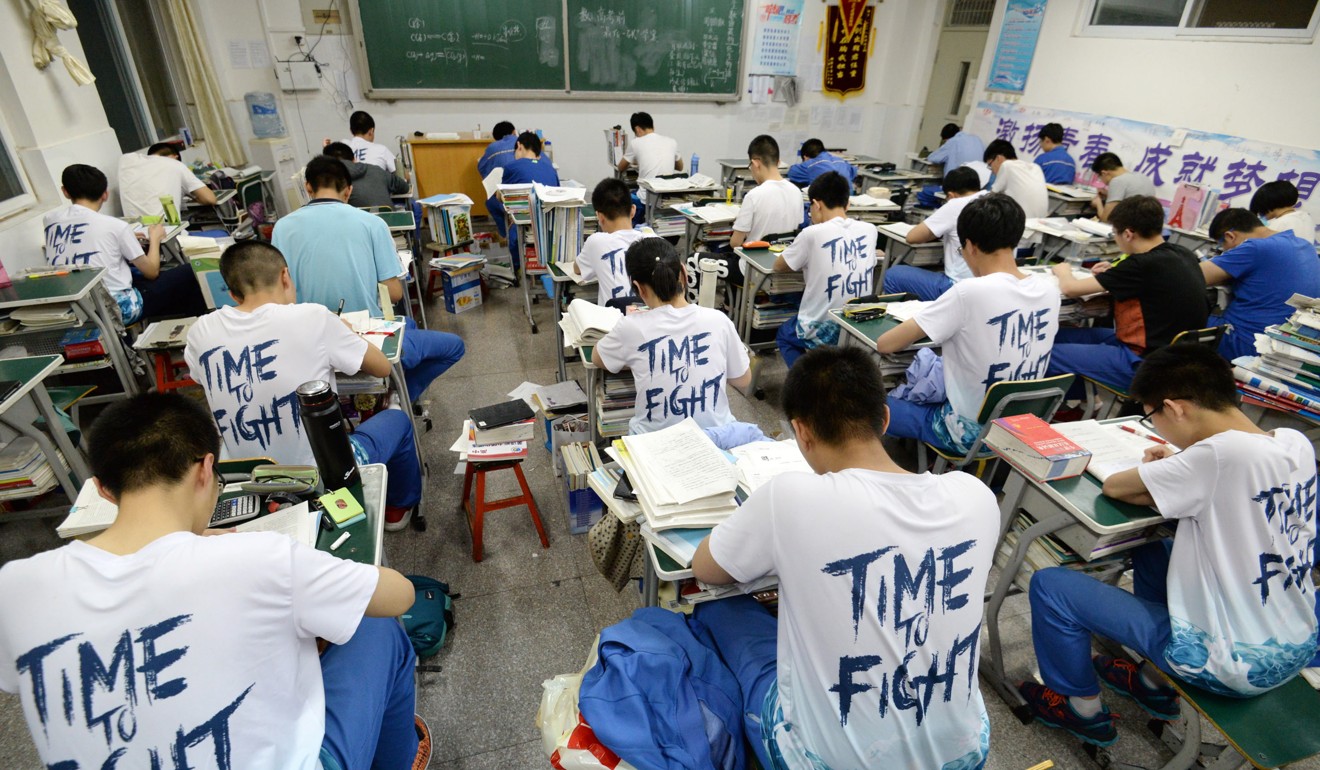
Mainland China’s after-school tutoring industry ripe for consolidation amid tougher government oversight
Stricter oversight by Ministry of Education could lead to shakeup in industry that provides after-school teaching to help Chinese students get into the top universities.
Mainland China’s booming after-school tutoring industry is ripe for further consolidation, with large players poised to gobble up smaller rivals forced out by tougher government oversight and low profit margins, a report said.
Beginning in February, the central government signalled it would clamp down on industry players who do not meet standards. It unveiled a survey of nearly 130,000 after-school teaching institutions in May found that more than half – 65 per cent – did not have necessary teaching certificates or business licenses.
The Ministry of Education’s push to improve compliance will mean many smaller players who were already struggling to eke out profits will be shaken out of the market, according to equity research by Jefferies.
Roughly 13 per cent – about US$6.66 billion – of China’s estimated $52 billion K-12 tutoring market share will be up for grabs, said the report by Jefferies.
Big players most likely to benefit are TAL Education Group, the world’s largest private education company, and New Oriental Education and Tech Group, Jefferies said, both of which trade in the US.
“In our view, it should be relatively easy for the large players to grab this market share vacated by the small players upon consolidation,” Jefferies said in its report.
Private tutoring has been dubbed an “arms race” in China, where young students will face the gruelling gaokao college-admissions test for limited seats at elite Chinese institutions as well as the tough competition for top foreign universities.
Getting into a top-tier university is considered a make-or-break moment for young Chinese, who face a competitive job market after graduation. About 15 per cent of China’s college graduates are unemployed in their first six months on the job market while about 25 per cent with diplomas earn skimpy wages, L.E.K. Consulting said in a report on education trends in China.
That helps explain why the industry has grown quickly in China. The country now dominates the world’s private education market, including after-school K-12 tutoring, accounting for eight of the top 15 listed companies globally, L.E.K. said in its report released in April.
Five years ago, only two Chinese names were among the top 15 listed education companies in the world by market capitalisation, L.E.K. said.
“In China, with its brand conscious, aspirational consumers, education is the ultimate consumer good,” L.E.K. said. “Nearly 9 per cent of Chinese household spending is on education, compared with around 4 per cent for other emerging markets – despite the fact that Chinese households have one or two fewer children than their counterparts in similar economies, and that public education is free.”
Song Ying of Beijing paid nearly US$10,000 for a course this summer offered by New Oriental, part of her efforts to prepare her 15-year-old daughter Hu Junhan to eventually apply for a top international institution.
“Junhan started to receive English-language tutorial even before her kindergarten, but the language barrier of getting into a US college is still high. We have to pay to play catch-up,” Song said.
The after-school tutoring market has already gone through some consolidation. But the government’s clampdown will accelerate the pace, said Johnny Wong Kin-man, the author of the Jefferies report.

“I think it’s a great opportunity for us to consolidate the market, and to take more market share from the competitors,” New Oriental Chief Financial Officer Stephen Yang said in an April earnings call.
New Oriental is expanding, adding 200 new learning centres last year and reaching into smaller cities, including with online offerings, Yang said.
In addition to stricter compliance, the education ministry is looking at such things as tougher oversight of fire safety at learning centres, new rules for online teaching programmes, and a ban on intense competitions for tutored students.
TAL, while also still growing, said it is taking a cautious approach to expansion, expressing uncertainty about government policy.
TAL Chief Financial Officer Rong Luo said in a July 26 earnings call that the company expects “more detailed policies” from the government that “will create some challenges in operation perspective for all (in the) industry, and also including us.”
But the government clampdown may also lead to some smaller players raising their game and becoming stronger, for example by capitalising on their early edge in smaller cities, said Anip Sharma, who wrote the L.E.K. report.
“China’s segmented tutoring industry underlines geographical advantage, especially in the (smaller) third and fourth tier cities, where many of the students still favour the small tutor centres close to their home,” he said.

